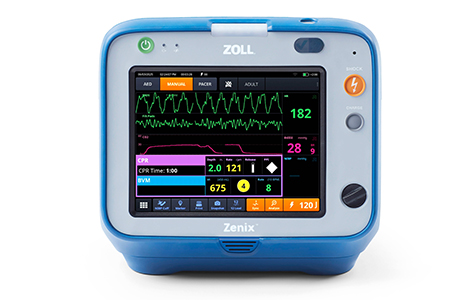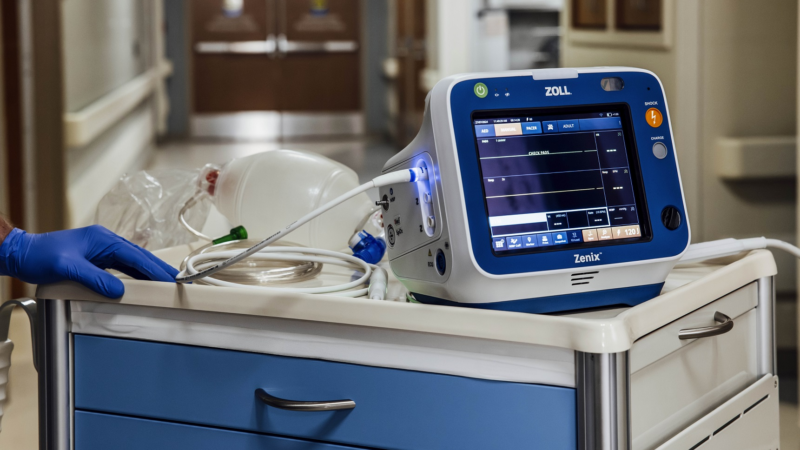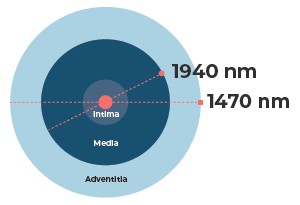DSMZ scientist develops innovative screening method for medical agents
A team of scientists led by Professor Dr. Yvonne Mast, head of the Department of Bioresources for Bioeconomy and Health Research at the Leibniz Institute DSMZ-German Collection of Microorganisms and Cell Cultures in Braunschweig, Lower Saxony, has developed a new screening strategy for active medical substances. This strategy is based exclusively on analyzing genome sequence data. Summarizing the advantages of her approach, Mast explains, „The advantage of our prediction strategy is that it can be used to screen purely digitally as well as very efficiently for specific potential drug producers and, in some cases, to screen out bacterial strains that are most likely to produce known substances. This makes the process of analyzing and finding active ingredients much easier. This new methodology is another important contribution in the rapidly developing research field of genome mining for the discovery of new active ingredients.“ In recent years, fewer and fewer new active ingredients, such as antibiotics, have been discovered and developed for medical use, while simultaneously the threat of multidrug-resistant pathogens have been rapidly increasing worldwide. A major problem in medical drug research is the high recovery rate of already known substances, which makes conventional screening methods highly inefficient.
Digitization in the field of active ingredient research
Digital sequence information is gaining more and more importance in active ingredient research. The team led by microbiologist Prof. Dr. Yvonne Mast has developed a prediction strategy based on genome sequence information from bacterial active ingredient producers that makes it possible to predict the production of a specific group of active ingredients, the so-called protein synthesis inhibitors. These active ingredients target the bacterial ribosome, which is an important place of action for many important antibiotics like erythromycin, tetracycline and clindamycin. The Braunschweig-based team of scientists were able to derive their prediction strategy by identifying specific indicator genes in the genome of drug producers from the bacterial group of Actinomycetes, which indicates protein biosynthesis inhibitor synthesis performance. The scientists provided proof of function by identifying the protein biosynthesis inhibitor amicoumacin from various Actinomyces strains of the DSMZ bacterial collection. The methodology has been named -footprinting and was recently published in the renowned scientific. The German Center for Infection Research (DZIF) supported the study.
Original publication:
Handel F, Kulik A, Wex KW, Berscheid A, Saur JS, Winkler A, Wibberg D, Kalinowski J, Brötz-Oesterhelt H, Mast Y (2022) -footprinting approach for the identification of protein synthesis inhibitor producers. NAR Genom Bioinform. Volume 4, Issue 3. https://doi.org/10.1093/nargab/lqac055
Press contact:
PhDr. Sven-David Müller, Head of Public Relations, Leibniz Institute DSMZ-German Collection of Microorganisms and Cell Cultures GmbH
Phone: ++49 (0)531/2616-300
Mail: press(at)dsmz.de
About the Leibniz Institute DSMZ
The Leibniz Institute DSMZ-German Collection of Microorganisms and Cell Cultures is the world’s most diverse collection of biological resources (bacteria, archaea, protists, yeasts, fungi, bacteriophages, plant viruses, genomic bacterial DNA as well as human and animal cell lines). Microorganisms and cell cultures are collected, investigated and archived at the DSMZ. As an institution of the Leibniz Association, the DSMZ with its extensive scientific services and biological resources has been a global partner for research, science and industry since 1969. The DSMZ was the first registered collection in Europe (Regulation (EU) No. 511/2014) and is certified according to the quality standard ISO 9001:2015. As a patent depository, it offers the only possibility in Germany to deposit biological material in accordance with the requirements of the Budapest Treaty. In addition to scientific services, research is the second pillar of the DSMZ. The institute, located on the Science Campus Braunschweig-Süd, accommodates more than 80,000 cultures and biomaterials and has around 200 employees. www.dsmz.de
The Leibniz Association
The Leibniz Association connects 97 independent research institutions that range in focus from the natural, engineering and environmental sciences via economics, spatial and social sciences to the humanities. Leibniz Institutes address issues of social, economic and ecological relevance. They conduct knowledge-driven and applied basic research, maintain scientific infrastructure and provide research-based services. The Leibniz Association identifies focus areas for knowledge transfer to policy-makers, academia, business and the public. Leibniz institutions collaborate intensively with universities – including in the form of „Leibniz ScienceCampi“ – as well as with industry and other partners at home and abroad. They are subject to a transparent, independent evaluation. Because of their importance for the country as a whole, the Leibniz Association Institutes are funded jointly by Germany“s central and regional governments. The Leibniz Institutes employ around 20,500 people, including 11,500 researchers. The financial volume amounts to 2 billion euros. www.leibniz-gemeinschaft.de
Die DSMZ ist das größte Bioressourcenzentren weltweit. Die Sammlung umfasst derzeit über 79.000 Bioressourcen.
Contact
Leibniz-Institut DSMZ-Deutsche Sammlung von Mikroorganismen und Zellkulturen
Sven-David Müller
Inhoffenstraße 7 B
38124 Braunschweig
Phone: 0531-5312616300
E-Mail: sven.david.mueller@dsmz.de
Url: http://www.dsmz.de
Die Bildrechte liegen bei dem Verfasser der Mitteilung.







